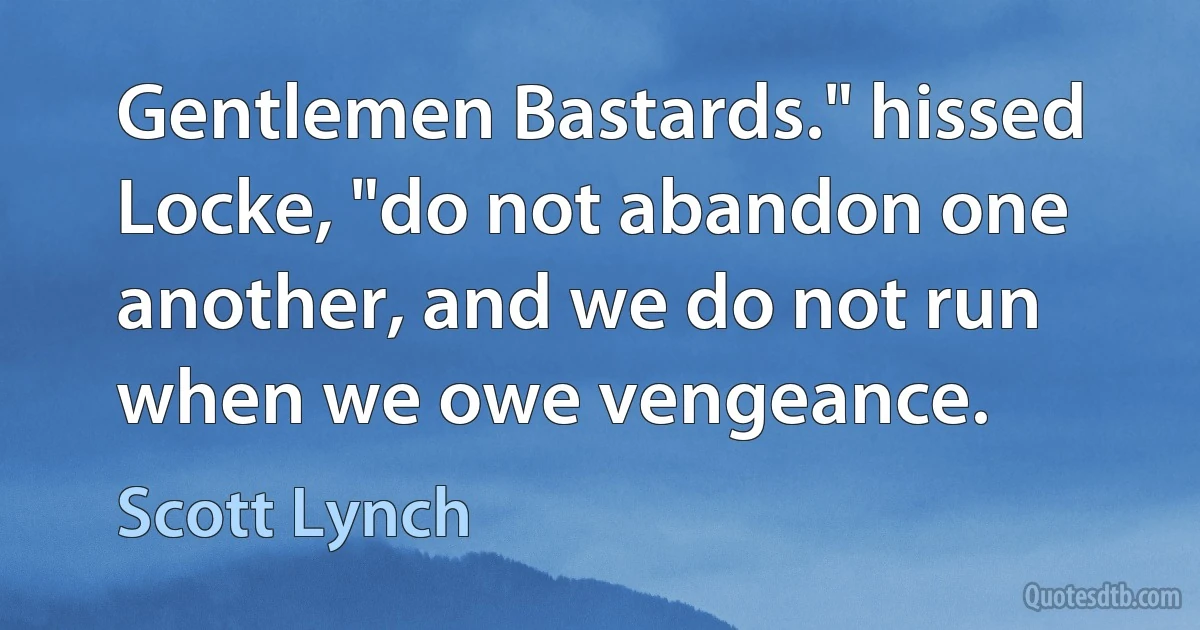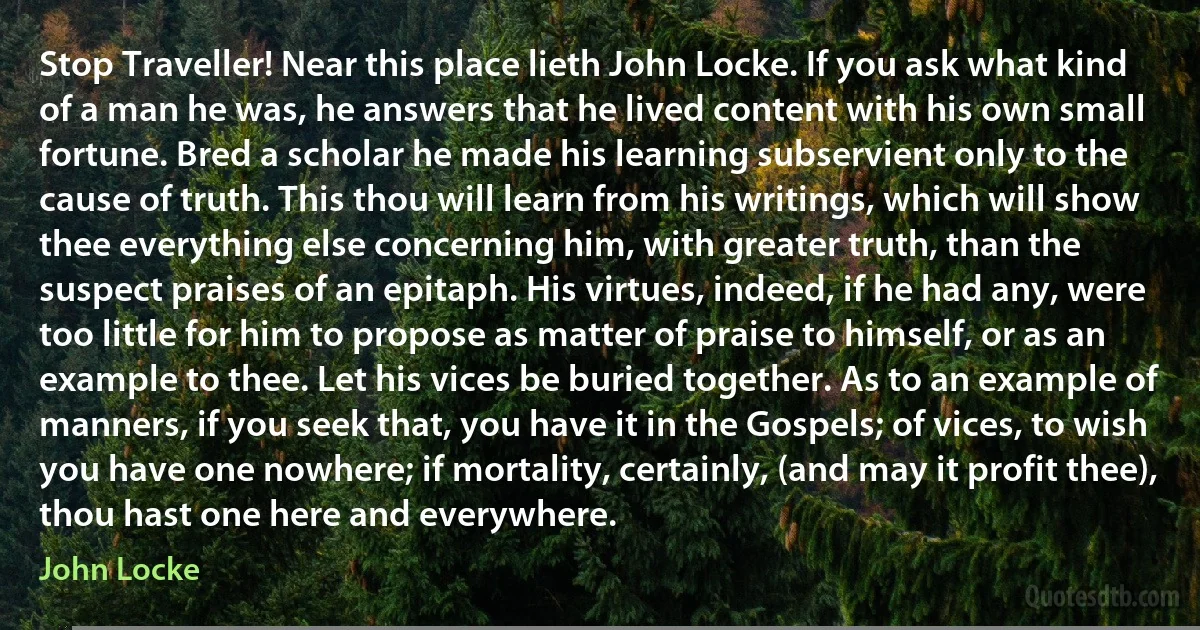Locke Quotes - page 3
Locke supposes that a person acquainted sensibly with the colours which compose a rainbow, can by the names of such colours in a verbal description, be made visually acquainted with a rainbow. The verbal description will give such a person's intellect a good verbal definition of the word rainbow, but it cannot communicate the sight to the extent that it differs, in any manner from the sights he already knows.

Alexander Bryan Johnson
I have sought with some touches of detail to bring out the solidarity and historical continuity of the High Intelligentsia of England, who have built up the foundations of our thought in the two and a half centuries, since Locke, in his Essay Concerning Human Understanding, wrote the first modern English book.

John Maynard Keynes
In 1904, he entered Madras Christian College was trained in European philosophy was introduced to the philosophies of Berkeley, Leibniz, Locke, Spinoza, Kant, J.S. Mill, Herbert Spencer, Fichte, Hegel, Aristotle, and Plato among others. He was also introduced to the philosophical methods and theological views of his MA supervisor and most influential non-Indian mentor, Professor A.G. Hogg.

Sarvepalli Radhakrishnan
Since Hayek was radically scornful of human reason, he could not, like John Locke or the Scholastics, elaborate a libertarian system of personal and property rights based on the insights of human reason into natural law. Nor could he, like Mises, emphasize man's rational insight into the vital importance of laissez-faire for the flourishing and even survival of the human race, or of foregoing any coercive intervention into the vast and interdependent network of the free market economy.
Instead, Hayek had to fall back on the importance of blindly obeying whatever social rules happened to have "evolved," and his only feeble argument against intervention was that the government was even more irrational and was even more ignorant, than individuals in the market economy.

Friedrich Hayek
To me, believing that some correspondence intrinsically just is reference (not as a result of our operational and theoretical constraints, or our intentions, but as an ultimate metaphysical fact) amounts to a magical theory of reference. Reference itself becomes what Locke called a 'substantial form' (an entity which intrinsically belongs with a certain name) on such a view. Even if one is willing to contemplate such unexplainable metaphysical facts, the epistemological problems that accompany such a metaphysical view seem insuperable. For, assuming a world of mind- independent, discourse-independent entities (this is the presupposition of the view we are discussing), there are, as we have seen, many different 'correspondences' which represent possible or candidate reference relations (infinitely many, in fact, if there are infinitely many things in the universe).

Hilary Putnam
King William asked Mr. Locke how long he thought the revolution principles might last in England. The philosopher answered, "Till this generation shall have passed away, and our universities shall have had time to breed a new one." Many things I disapprove in our universities, where the country gentlemen are educated in Toryism by Tory clergy.

Horace Walpole


